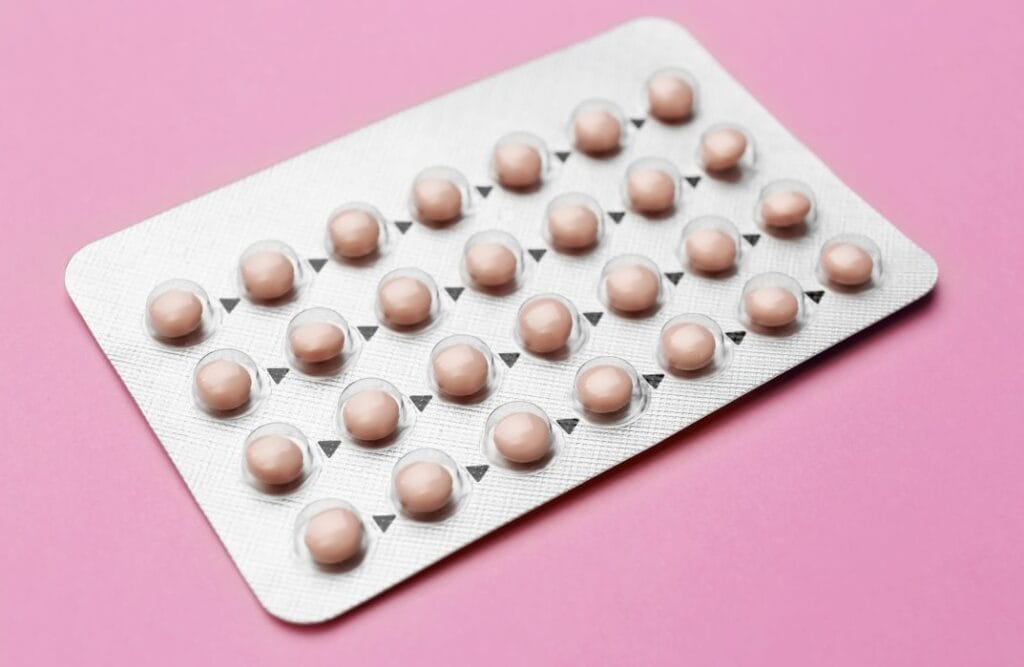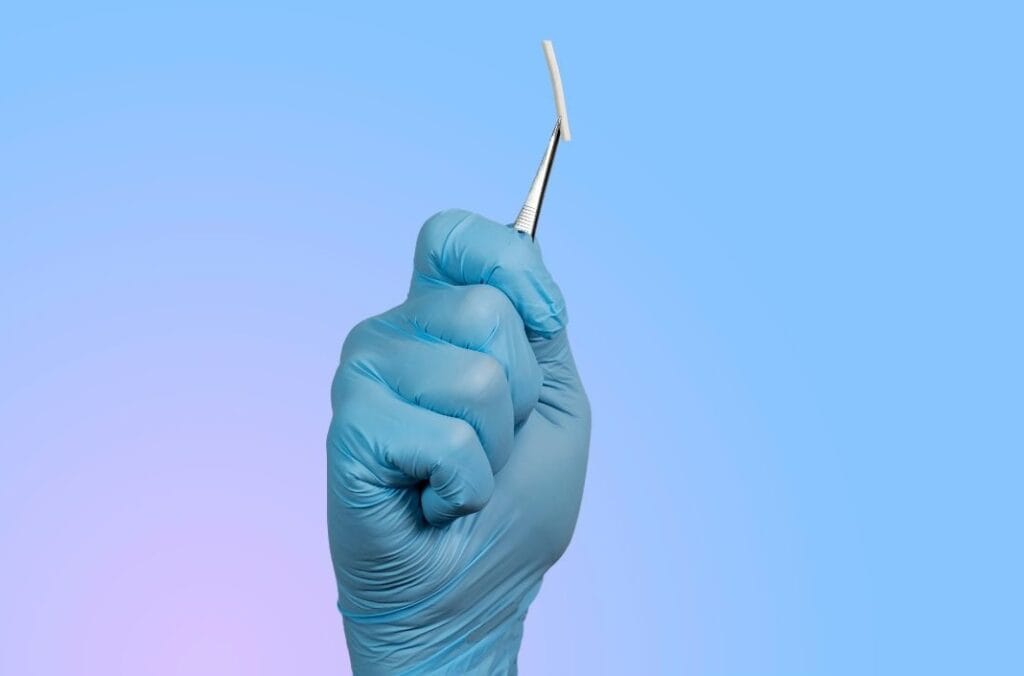Choosing the right birth control method is a major decision for many women, as it impacts not only pregnancy prevention but also overall health and lifestyle. Two popular long-term options are the contraceptive pill and the birth control implant, both of which are effective methods of contraception but differ in how they work, the hormones they contain, and their side effects.
In this article, we’ll look at the key differences between these two methods to help you decide which one may be the best fit for your needs. It’s essential to remember that discussing your options with a healthcare professional is always the best step towards making an informed choice.
What is the Contraceptive Pill?

The contraceptive pill is a daily oral medication designed to prevent pregnancy by releasing hormones that control the menstrual cycle. There are two main types of pills: the combined pill, which contains both oestrogen and progestogen and the progestogen-only pill (also known as the mini pill).
Both types work primarily by preventing ovulation, meaning no egg is released for fertilisation. Additionally, they thicken the cervical mucus, making it harder for sperm to reach the egg, and thin the lining of the uterus to reduce the chances of implantation. For the pill to be most effective, it must be taken at the same time every day. Missing doses, vomiting, or certain medications can reduce its effectiveness, so consistency is key to providing maximum protection.
What is the Implant?
The contraceptive implant is a small, flexible rod placed under the skin of the upper arm, releasing the hormone progestogen to prevent pregnancy. Once inserted by a healthcare professional, the implant works for 3 to 5 years, depending on the brand, with little to no maintenance required. Like the contraceptive pill, the implant prevents ovulation and alters the cervical mucus and uterine lining, making it difficult for sperm to reach an egg or for an egg to implant.
The insertion procedure is quick and straightforward, involving a minor local anaesthetic to numb the area. After insertion, the implant is over 99% effective and offers long-term effective contraception methods without the need for daily attention.
Effectiveness
When it comes to effectiveness, the contraceptive pill vs implant are both highly reliable, but they differ in their practicality. The contraceptive pill is around 99% effective with perfect use, meaning it must be taken consistently and on time every day. However, in typical use, its effectiveness drops to around 91%, as missed pills, illness (such as vomiting), or interactions with other medications can reduce its reliability.
On the other hand, the implant is over 99% effective, regardless of user actions, as it provides continuous hormonal release without requiring daily attention. Once inserted, the implant protects against pregnancy for several years, significantly reducing the risk of human error compared to the pill.
Ultimately, the choice between these methods may depend on your lifestyle and how comfortable you are with remembering daily tasks.
Hormones
Both the contraceptive pill and the implant use hormones to prevent pregnancy, but they differ in their hormonal content and delivery. The contraceptive pill comes in two forms: the combined pill, which contains both oestrogen and progestogen and the progestogen-only pill (mini pill), which only contains progestogen. These hormones work together to stop ovulation, thicken cervical mucus, and thin the uterine lining. The combination of hormones in the pill may be preferred by some women but can cause side effects for others, particularly those sensitive to oestrogen.
The implant, on the other hand, only releases progestogen, which prevents pregnancy through the same mechanisms as the pill but without the need for oestrogen. For women who cannot or prefer not to take oestrogen, the implant may be a better option. How your body reacts to these hormones can vary, so it’s advised to consider any sensitivities or preferences when choosing between the two.
Side Effects
Both the contraceptive pill and the implant come with potential side effects, although these can vary from person to person. The contraceptive pill is known to cause side effects such as nausea, headaches, mood changes, and weight gain. Some women may also experience an increased risk of blood clots, particularly with the combined pill, due to the presence of oestrogen. Additionally, oestrogen can elevate the risk of certain cancers, especially if there is a family history of those cancers, so this is important to consider in consultation with your healthcare provider. However, the pill can also have positive side effects, such as regulating periods, reducing period pain, and improving acne.
The implant, which only releases progestogen, has different side effects. The most common include irregular periods, acne, and slight bruising or discomfort at the insertion site. Some women may also experience changes in their mood or weight. One advantage of the implant is that it avoids the risks associated with oestrogen, such as blood clots, making it a suitable option for women who are sensitive to oestrogen or have certain health conditions. Monitoring your body’s response to either method and consulting a healthcare provider if side effects become troublesome or concerning is always recommended.
Ease of Reversibility
If you decide to stop using either the contraceptive pill or the implant, both methods allow for a relatively quick return to fertility. The contraceptive pill can be stopped at any time, and fertility typically returns to normal within a few days, allowing women to resume their natural menstrual cycle almost immediately.
With the implant, the process is similarly straightforward. Once it is removed by a healthcare professional, fertility usually returns rapidly, often within a few weeks. The removal procedure is simple and done in a similar way to the insertion, involving a minor incision under local anaesthetic.
Both methods provide flexibility if you wish to change or stop contraception, though it may take a short time for menstrual cycles to fully normalise.
Availability
The contraceptive pill is widely available through prescriptions from GPs, sexual health clinics, and online healthcare providers. It can be easily obtained from most pharmacies, making it a convenient option for many women. However, regular prescriptions and repeat trips to the pharmacy may be required, depending on the healthcare provider and location.
The implant, on the other hand, requires a minor procedure for insertion and removal, which must be performed by a healthcare professional. This means it may not be as readily accessible as the pill and might involve booking appointments at a clinic or GP surgery. However, once inserted, it doesn’t require daily attention, making it a lower-maintenance option in the long run.
Both options are typically covered by the NHS in the UK, while in other regions, such as the US, insurance coverage may vary depending on healthcare policies and individual insurance plans. Always check with your healthcare provider for information on accessibility and any potential barriers to access in your area.
When choosing between the contraceptive pill and the implant, it’s best to consider factors such as effectiveness, hormone content, side effects, ease of use, and personal health needs. Both methods are highly effective at preventing pregnancy, but the pill requires daily attention, while the implant provides long-term protection with minimal upkeep. Hormonal birth control reactions and contraceptive side effects can differ between individuals, so understanding how your body responds is needed.
The decision comes down to personal preferences, lifestyle, and medical history. It’s always advisable to consult with a healthcare provider to make the most informed choice for your individual needs. Whether you opt for the pill or the implant, both offer reliable contraception that can be suited to your health and life goals.



